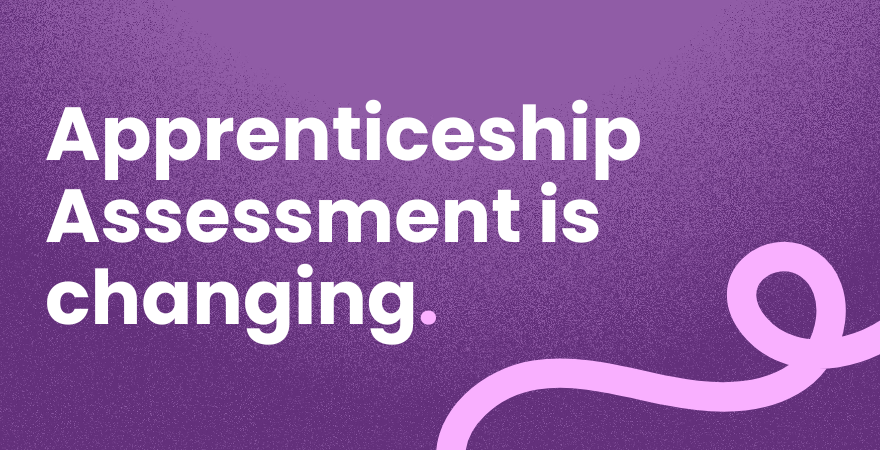
The past six months in the apprenticeship landscape have felt like gazing into a crystal ball.
We think we can see the future. But the image in the crystal ball is layered with mist, shifting shapes, and hidden details.
Since the Department for Education’s announcement during National Apprenticeship Week in February, we’ve seen a steady rollout of changes; most notably, the introduction of new Apprenticeship Assessment Principles.
Subsequently, IfATE and, more recently, Skills England have been working to implement these changes. Ofqual is now consulting on its regulatory approach for the apprenticeships it oversees. While some details remain unclear, the broader direction is becoming more defined. As training providers, it’s important to stay informed and reassured that, while the landscape is shifting, Open Awards are navigating it with experience and clarity.
Here’s what we know so far:
- New terminology to learn
Expect a shift in language:
- ‘End-point assessment’ becomes ‘apprenticeship assessment’
- ‘End-point assessment organisations’ become ‘assessment organisations’
- ‘On-programme’ becomes the ‘practical period’
- These changes reflect a broader effort to reflect the wider changes.
- All assessment plans will be redeveloped
The goal is for Skills England to complete this by August 2026. This means we’re entering a transitional phase throughout 2025 and 2026, during which assessment plans will be updated and simplified.
- Employers will assess behaviours
Employers will now be responsible for confirming whether their apprentice consistently demonstrates the behaviours outlined in the standard. This marks a significant shift in responsibility and will require clear guidance and support which Open Awards is working to support.
- Changing relationships between providers and AOs
Assessment organisations (AOs) will be expected to manage training providers similarly to how they manage centres offering regulated qualifications. Ofqual views apprenticeship assessments as regulated qualifications, which means:
- Enhanced up-front due diligence
- Formalised ongoing quality monitoring
- Potential sanctions for non-compliance
- More flexibility for AOs in assessment design
AOs will have greater freedom to determine how best to assess competence, provided outcomes remain comparable across a standard. At Open Awards, we’re well-positioned to use this flexibility wisely. Balancing innovation with robust, valid assessment practices.
- Independent external assessment will remain
External, synoptic assessment by the AO will still be required, making up at least 40% of the overall assessment. The format may vary by standard, but this is a model we are well used to at Open Awards, with our offer in vocational and technical qualification.
- Providers may deliver part of the assessment
In future, apprenticeship assessments may be limited to two methods per standard; one potentially delivered by the provider during the practical period, under AO oversight. Providers will require:
- Adequate infrastructure and resources
- Occupationally credible assessors (possibly with formal assessor qualifications)
- Strong conflict of interest management
- The introduction of external quality assurance of Provider Assessment
AOs are likely to adopt risk-based sampling approaches. However, providers should be aware that quality concerns could trigger additional external quality assurance (EQA) activity and even retrospective investigations.
- Costs will shift, not spike
While overall costs are unlikely to change, how they’re allocated will change. For example:
- External assessment fees may decrease
- Providers may face approval or annual fees
- EQA sampling may introduce new indirect costs
- Planning for these changes now will help avoid surprises later.
- Apprentices can transfer to newer versions of Standards
Transfers will be possible, but providers must ensure both the apprentice and employer understand the implications and that the apprentice is properly prepared.
Our Commitment to You
At Open Awards, we understand vocational assessment and we’re committed to delivering credible, high-quality apprenticeship assessments aligned with the new principles. We have a history of working closely with training providers and employers to design and deliver both internal and external assessment and know how well this can work. We will continue to not compromise on quality or integrity. You can trust that apprentices assessed through Open Awards will continue to meet the high standards expected by employers.
